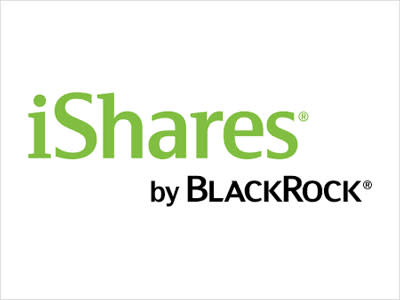BlackRock has been managing index portfolios since 1971
This fund provides low-cost exposure to a variety of companies in Japan
It’s closely tracked the FTSE Japan Index since launch
This fund currently features on our Wealth Shortlist of funds chosen by our analysts for their long-term performance potential
How it fits in a portfolio
The iShares Japan Equity Index Fund invests in Japan, home to some of the best-known businesses on the planet, including Toyota, Sony, and Nintendo to name a few. This fund invests in company shares of all sizes and across a variety of industries.
An index tracker fund is one of the simplest ways to invest and can be a low-cost starting point for a portfolio aiming to deliver long-term growth. We think this fund could be used to diversify a global portfolio or could be a good addition to a portfolio of tracker funds.
Manager
Dharma Laloobhai, Managing Director, is EMEA Head of Core Index Equity Portfolio Management within BlackRock’s ETF and Index Investments (EII) Index Equity team. She is responsible for fund managers based in London and Munich who manage developed and emerging market iShares equity index funds and ETFs.
Every equity index fund at BlackRock has a primary, secondary and tertiary manager, who each have the ability to run the fund, along with the wider team. The wider team is well-resourced and experienced in index investing.
BlackRock’s global approach allows them to work closely with their teams across the world, aiding more efficient management of their funds. We have positive conviction in Blackrock’s ability to provide simple and effective tracking options for investors.
Process
The fund aims to track its benchmark, the FTSE Japan Index, by investing in every company in the index, and in the same proportion. This is known as full replication and helps the fund closely match the performance of the index.
The fund invests in around 510 Japanese companies across a range of different sectors. Industrials and consumer discretionary account for nearly half of the fund, with the rest spread across other sectors such as financials, technology and healthcare. Most of the fund is invested in large and medium-sized companies, while around 4.5% is invested in smaller companies. They have greater growth potential than their larger peers but can experience more extreme price movements. This can benefit the fund in the long term but adds risk.
Keeping costs low is a key part of the team’s strategy to track the index closely. The portfolio managers communicate with teams in Japan to ensure trades are placed at the best price, keeping costs low.
The fund can lend some of its investments to others in exchange for a fee in a process known as stock lending. This also helps to keep costs low. Since BlackRock’s lending program started in 1981, only three borrowers with active loans have defaulted. In each case, BlackRock was able to repurchase every security out on loan with collateral on hand and without any losses to their clients. Even so, stock lending is a higher risk approach.
The fund has tracking error targets, which measure how closely it's tracking its benchmark. These are monitored by BlackRock on a daily and monthly basis to ensure the fund is being run efficiently.
Culture
BlackRock is currently the largest asset manager in the world. The company was founded in 1988 by eight partners including current CEO Larry Fink and is known for both active and passive strategies across the world. Employees at BlackRock are encouraged to hold shares so that they are engaged with helping the company perform well and grow. The iShares brand represents BlackRock's family of index tracking and exchange-traded funds.
As the world's largest asset manager, and with lots of resource and knowledge under its belt, BlackRock benefits from unique access to the marketplace, which can help reduce trading costs. BlackRock is also a pioneer in the passive investment space and has a track record of innovation in this part of the investment market.
The team running this fund also works closely with various equity and risk departments across the business. We believe this adds good support and challenge on how to run the fund effectively.
ESG Integration
BlackRock was an early signatory to the Principles for Responsible Investment (PRI) and has offered ESG-focused funds for several years, including through its iShares range of passive products. However, it only made a company-wide commitment to ESG in January 2020. Following that announcement, the company promised to expand its range of ESG-focused ETFs, screen some thermal coal companies from its actively managed funds and require all fund managers to consider ESG risks.
BlackRock’s Investment Stewardship Team aims to vote at 100% of meetings where it has the authority to do so. The Investment Stewardship team engages with companies, in conjunction with fund managers, and the results of proxy votes can be found on the BlackRock website’s ‘proxy voting search’ function. The firm also outlines its work on voting and engagement in annual and quarterly Stewardship reports.
The firm has courted controversy in recent years for failing to put its significant weight behind shareholder resolutions aimed at tackling climate change. It responded by committing to be more transparent on its voting activity and providing rationales for key votes. In 2024, Blackrock announced that its US arm would step back from the Climate Action 100+ collective engagement initiative, citing legal considerations, although it suggested its international arm would remain a member.
As the iShares Japan Equity Index Fund isn't an ESG-specific fund, there are no company exclusions applied like tobacco or weapons, however an ESG version of this fund is available.
Cost
The fund has an ongoing annual fund charge of 0.08%. We believe this is excellent value when compared with other passive funds in this sector. This is also one of the lowest cost funds on the HL platform for passively tracking the Japanese market.
Our platform charge of up to 0.45% per annum also applies, except in the HL Junior ISA, where no platform fee applies.
Performance
Since launch, the iShares Japan Equity Index fund has done a good job of tracking the FTSE Japan Index. As you would expect from an index tracker fund, it’s fallen behind the benchmark over the long term because of the costs involved in running the fund. However, the tools used by the managers have helped to keep performance as close to the index as possible.
The fund has tracked the index well over the last 12 months and returned 21.82%*. Companies in the financials and consumer discretionary sectors were the main contributors to performance, whereas healthcare companies detracted from performance. Real estate and energy performed strongly over this period, but these sectors make up a smaller portion of the index so don’t impact overall returns as much.
There have been a lot of changes in Japan during the year. One of the key events more recently was when the Bank of Japan ended eight years of negative interest rates and raised rates for the first time since 2007. This was a significant move as Japan became the last country in the world to end negative interest rates.
Ongoing corporate governance reforms have had a positive impact on companies in Japan and are driving foreign investment into Japanese companies towards record highs. In February, we saw Japan’s main stock market pass its all-time high after 34 years.
Given BlackRock's size, experience and expertise running index tracker funds, we expect the fund to continue to track the FTSE Japan index closely in the future, though there are no guarantees. A glance at the five-year performance table below shows that the fund has seen both positive and negative returns, which reflects the performance of the underlying benchmark. Remember, past performance isn’t a guide to future returns.
Annual percentage growth
Mar 19 – Mar 20 | Mar 20 – Mar 21 | Mar 21 – Mar 22 | Mar 22 – Mar 23 | Mar 23 – Mar 24 | |
|---|---|---|---|---|---|
iShares Japan Equity Index | -2.27% | 26.76% | -2.70% | 1.42% | 21.82% |


